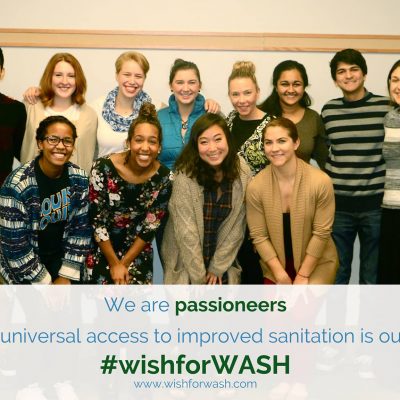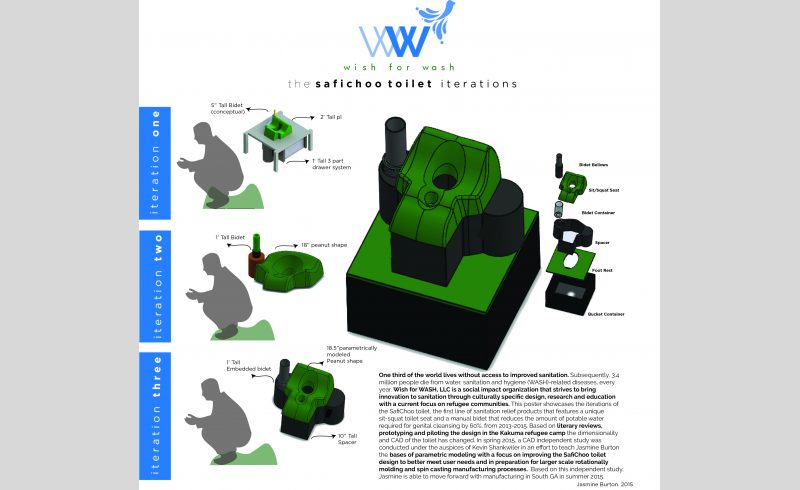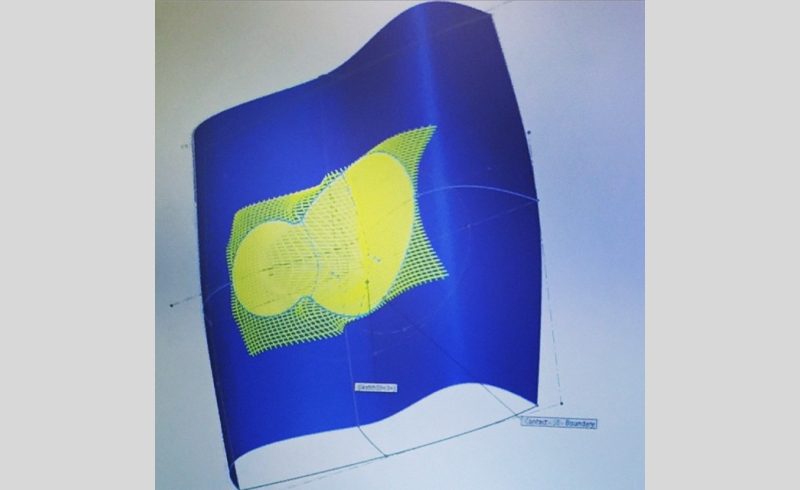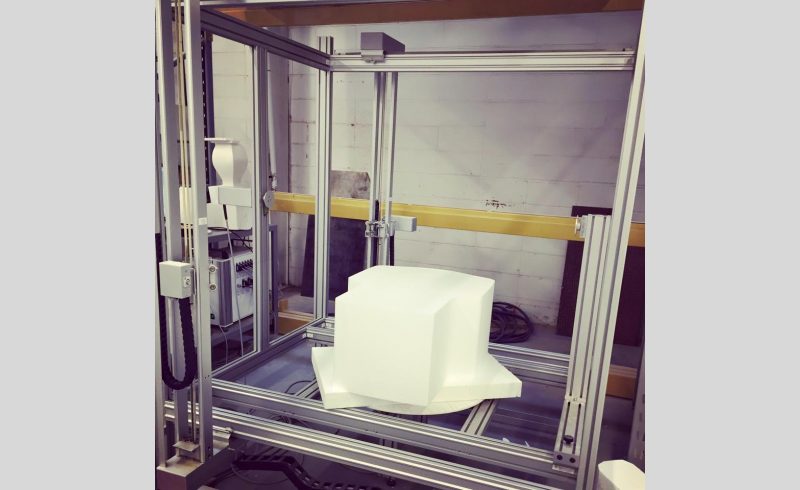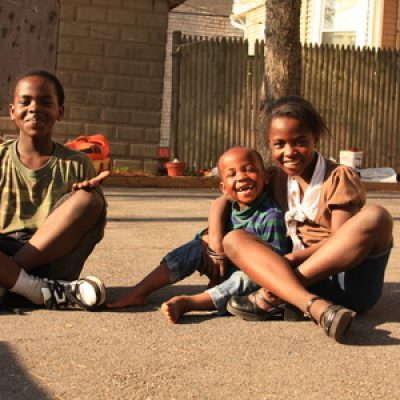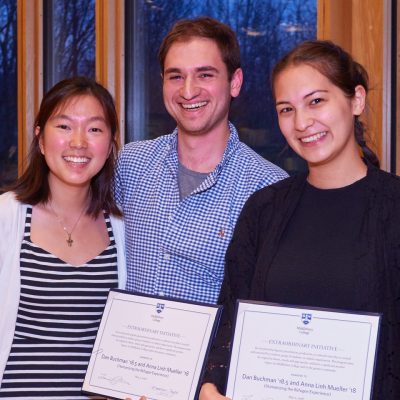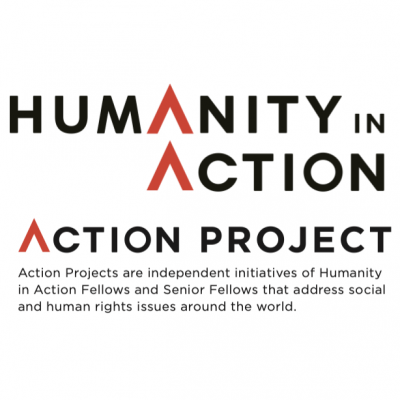Article
Participating in the Georgia Tech Womenʼs Leadership Conference, the Center for Disease Control’s (CDC) Summer Public Health Scholars Program at Columbia University, and the 2014 Humanity in Action Polish Fellowship, Senior Fellow Jasmin Burton had the opportunity to learn about and experience the public health needs and disparities in low-income communities and in the world around her. Her specific design passion was to improve womenʼs health by means of redesigning WASH infrastructure (such as toilets and menstrual hygiene products) in and for these communities.
According to UNICEF, 2.6 billion people lack hygienic sanitation facilities and 768 million people drink unsafe drinking water and, of these people, women and girls are disproportionately burdened by poor sanitation and water inequities (2015). Women and girls are perpetually disempowered; they are deprived of educational and career opportunities due to the lack of menstrual hygiene products, properly designed WASH infrastructure, and water accessibility since many women spend most of their days fetching water.
After winning the Georgia Tech InVenture Prize competition, the largest undergraduate invention competition in the United States, Jasmin and her team were able to bring their design to the Kakuma Refugee camp in Kenya.
Design knowledge is becoming critical in the field of public health, international development and human rights activism, as many disease outbreaks and global health disparities are the byproducts of the designed and built environment in which all people live. This is what sparked Jasmin’s senior design team to develop SafiChoo, an inexpensive mobile sanitation solution intended to reduce oral-fecal contamination and the spread of waterborne diseases. After winning the Georgia Tech InVenture Prize competition, the largest undergraduate invention competition in the United States, Jasmin and her team were able to bring their design to the Kakuma Refugee camp in Kenya in 2014.
Below, Jasmin gives a TED Talk on the work of her team in implementing Wish for WASH:
According to UNICEF, 2.6 billion people lack hygienic sanitation facilities and 768 million people drink unsafe drinking water and, of these people, women and girls are disproportionately burdened by poor sanitation and water inequities.
A squatting position for defecation in public facilities is preferred in many cultures worldwide, while genital washing is a religious and cultural ritual practiced by nearly 70% of refugees. The SafiChoo 2.0 toilet, Wish for WASH’s (W4W) first line of sanitation relief products, is a novel toilet seat system designed to address these cultural preferences. The SafiChoo 2.0 offers users an ergonomic and hygienic experience enabled by two key features:
- Sit-Squat Toilet seat: Enables users to safely sit or squat. While squatting is the culturally preferred method, by designing an integrated sitting option, the Safichoo encourages greater use of any sanitation infrastructure by the elderly, women and children.
- Manual Bidet: Culturally-preferred method for cleansing increases adoption and usage. The revolutionary design reduces 60% of potable water used in genital cleansing when compared to the current bucket method. This reduction in water consumption is vital in maintaining sustainable water supplies in refugee camps.
Ten toilets were deployed and the findings lead to product iterations to decrease smell, improve the user experience, while the pilot increased overall interest and sanitation awareness in the refugee community.
W4W believes that human-centered design and the testing of prototypes with end users are key elements to developing a valuable product. With support from the CDC and the Norwegian Refugee Council (NRC), Wish for WASH conducted its first pilot in the Kakuma refugee camp in the summer of 2014 under the auspices of Sanivation. Ten toilets were deployed and the findings lead to product iterations to decrease smell, improve the user experience, while the pilot increased overall interest and sanitation awareness in the refugee community.
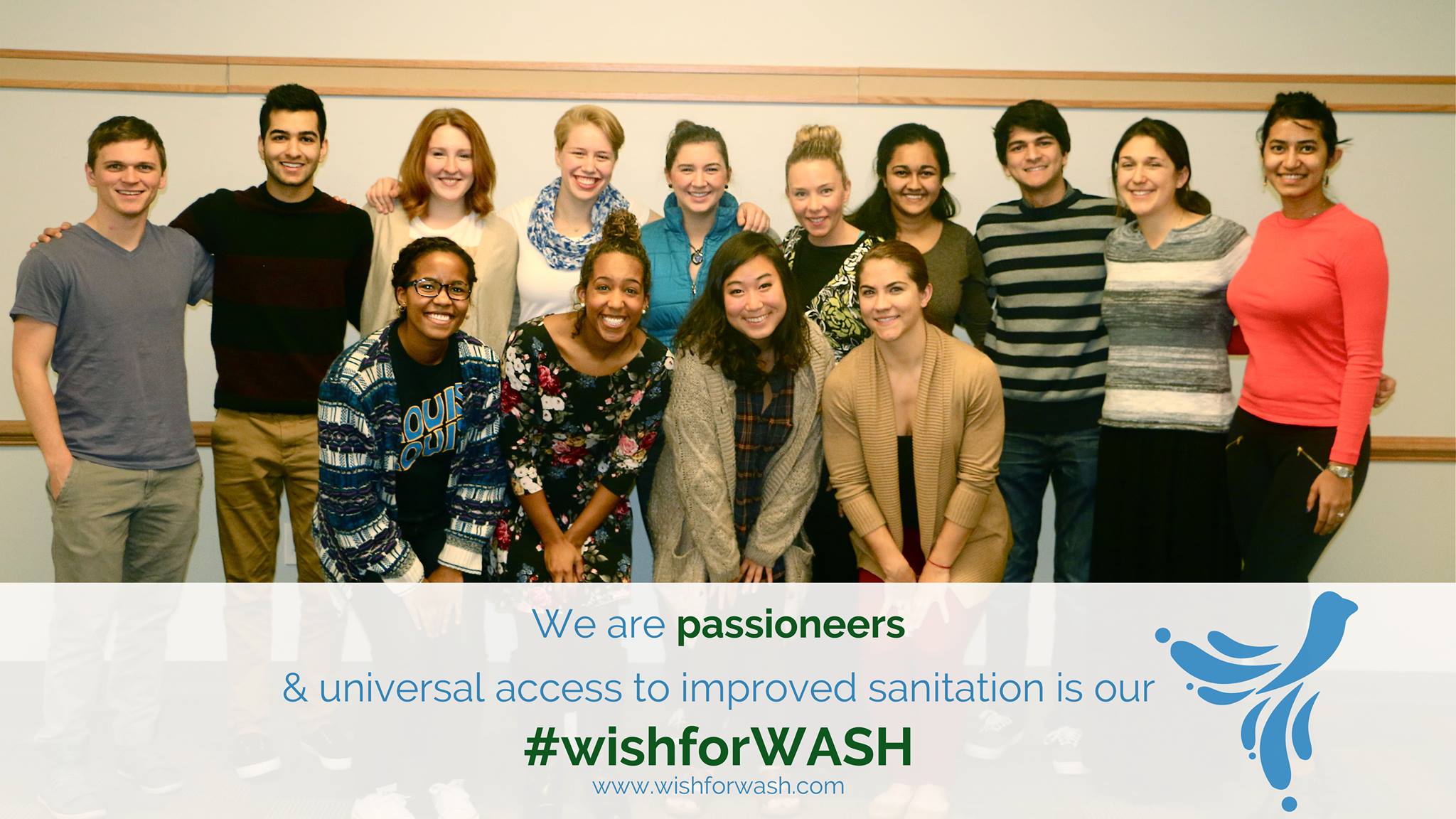
Ultimately, Jasmin seeks to empower marginalized people around the world to reach their highest potential in society via implementing public health interventions, designing culturally specific WASH infrastructure, as well as developing strategic health educational systems.

